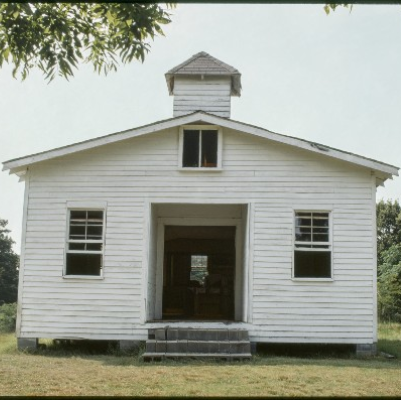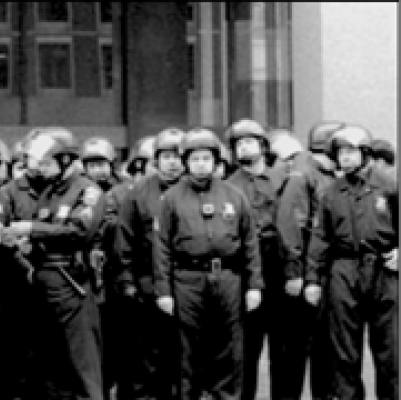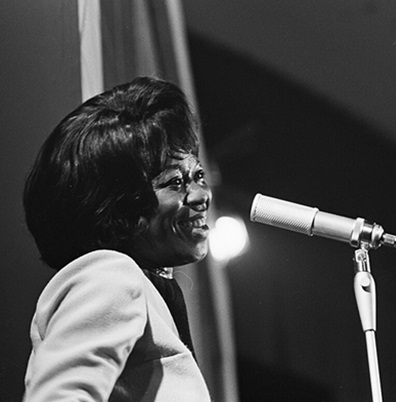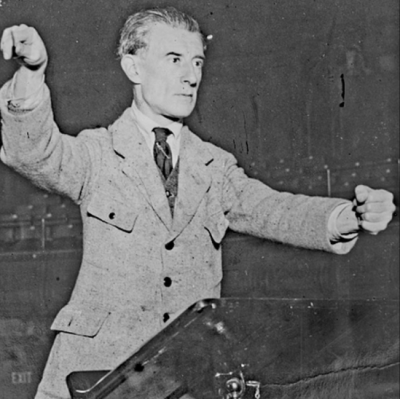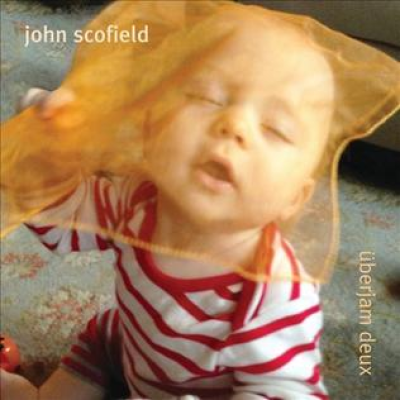.
.
New Short Fiction Award
Three times a year, we award a writer who submits, in our opinion, the best original, previously unpublished work.
Kenneth Levine of Wethersfield, Connecticut is the winner of the thirty-seventh Jerry Jazz Musician New Short Fiction Award, announced and published for the first time on November 5, 2014.
.
.

Kenneth Levine
.
*
.
Ken Levine is an attorney who writes short stories in his spare time. “Homage” was inspired by his appreciation of the artistry of Chet Baker. His short stories have been published in print and online, including venues such as the .New Plains Review, Thuglit, and Imaginaire.
.
.
_____
.
.
photo by Siarhei Malets/via Pexels.com

.
.
Homage
by
Kenneth Levine
.
___
.
.
I deplaned in Amsterdam to confront my father. In 1990, the year I was born, after the likes of Stan Getz and Freddie Hubbard dubbed him “the reincarnation of Chet Baker,” he quit his part-time job repairing cars in Gilbert, Iowa to go on a worldwide tour from which he never returned.
From the airport I boarded a train to Centraal Station, across from which the Prins Hendrik hotel is situated at the Northern end of Zeedijk Straat, and by early evening I had navigated through the designated lanes over which walkers, bicyclists, and motorists coursed to stand before a bronze tablet on the hotel’s brick front that featured a haggard Chet Baker playing the trumpet over an inscription that read: “Trumpet player and singer Chet Baker died here on May 13th, 1988. He will live on in his music for anyone willing to listen and feel.” In the lobby I viewed a framed print showing the worn Baker facing right and a younger, handsome Baker facing left, each playing the trumpet, with the initials “CB” in between, a small bronze plaque with “1929-1988” beneath his name, and other Baker memorabilia.
The clerk at the reception desk gave me the key to the room I had reserved. I rode the elevator to the second floor and entered Room 210 through a door with a sign on it that read, “The Chet Baker Room.” Bright yellow walls and a simple dresser and nightstand underscored rather than muted an aura of otherworldliness; it was as if Baker’s ghost occupied the place. I dropped my backpack on the bed, stood at the window, and as I stared at the distance from the ledge to the brick walkway below, imagined with sadness the long discordant shriek that must have been the last note sounded from Baker’s lips as he either fell or jumped to his death.
That night I lay sleepless in bed, wishing I could have brought my stash of heroin on the plane so I could experience the thrill of injecting myself in the room where Chet Baker shot up, perhaps even on the same mattress where he sat and felt the evening air breeze through the window and caress his sleeveless arm as he did the deed. I grew up listening to my father’s two CDs that were issued in 1991 and 1996, reading about him on the internet and the microfiche of old newspaper and magazine articles, playing Baker’s CDs, watching the Baker documentary, “Let’s Get Lost,” and clips of Baker performing on YouTube, and reading the two Baker biographies and his autobiography. Heroin was my only other connection to Baker and my father, who had been arrested twice for drug possession.
The next evening I passed a flyer on the brick front of the Huis van Koel that announced the Tom Drake Kwintet was performing and stepped through its doors beneath a red sign that set the bar’s name in big white capitalized letters. I walked past a long wooden bar tended by a young black man and sat on a chair at a table beside others that surrounded a small stage on which the drummer, bassist, pianist, and flutist stood waiting by their instruments. The place stunk of beer and marijuana. As it filled to its capacity of about sixty people, it became stifling hot.
My father appeared at the rear of the stage and walked with his trumpet in hand to the microphone stand that was center stage to a roomful of applause. He placed the trumpet on the floor beside his feet and the pianist began to play. He stood silently for a moment, then he hunched over the stand, turned his head sideways, then forward, grasped the stand and tilted it backward until the microphone was against his lips, shut his eyes, inhaled, and bemoaned in song that he was a fool to want you. The flutist, bassist, and drummer joined in and my father’s voice rose from the cocoon of their accompaniment like a butterfly with a fluttering wing span that unfurled the colors of the loneliness and despair of the heartbroken. As he sang sweat poured from his face and ran down the inlets of his cheeks and onto the microphone and his shirt. Next the flutist blew a solo that quivered with sadness while my father lit and smoked a cigarette or dangled it from his lips and the others tapped their feet or swayed. The bassist and drummer fell in with the flutist, the bassist slapping his fingers against the fingerboard of his double bass to create a slow thudding rhythm, and the drummer tapping the cymbal foot pedal and swirling the brushes on the snare to smooth out the beat, while my father placed his cigarette in an ashtray at his feet, wet his lips, and lifted his trumpet. After the pianist added his fingering of the ivories for a few bars, my father placed the trumpet to his lips and his horn split the air with groans that made the pain in the song so vivid that when he shook the spit from the trumpet, I was sure the spit was tears. Then my father sang to their accompaniment, and with each exhalation he filled the room with a stream of words dammed by an occasional pause where the notes seemed lodged in his throat and his face tensed with the effort of dislodging them, or a pause within a pause where they seemed to accumulate in a death gurgle and his face contorted with fear and urgency. I worried he would choke or suffocate in the midst of song, but each time the words burst from his lips and his face slackened with relief.
I was startled by my father’s appearance. On his CDs he was a young man who was handsome enough to be a movie star. Bent over the microphone he was a man whose hair was grey and sparse, what was left of it slicked greasily back, whose skin was thin and translucent, with visible veins and brown spots, whose forehead and cheeks, which were indented when he wasn’t blowing into the trumpet, were lined like the slats of a Venetian blind. He wore huge plastic frame glasses and his brown and chipped teeth were set within swollen red gums. Although he was still a few years shy of fifty, he looked older than the fathers of my friends, even old enough to be my grandfather.
After the quintet finished playing “I’m A Fool To Want You,” “Easy Living,” “Look For The Silver Lining,” and three other Chet Baker songs, each to thunderous applause that made me wonder if they were clapping because he was able to stand and perform despite their waiting for him to fall and fail, my father cleared his throat and said, “We just played five days at a big club, one hundred, maybe one hundred fifty people.” He cleared his throat again, and his voice slurred, “And you could hear a pin drop.” Again he cleared his throat, this time as if he had a hair ball stuck in it, and slurred, “I know I’m not playing good enough for that tonight, but you guys have more,” and he moved his fists like an aged over-the-hill boxer, “enthusiasm.” He coughed and slurred, “We’re going to take a break now,” and I thought how odd it was that a stutterer can sing without stuttering and a slurring junkie can sing without slurring.
When my father turned and walked off the back stage into darkness, anxiety shot through my body, like cannon fire, and I felt nauseous enough to wonder if I would vomit. Realizing this was my chance to confront him. I willed myself to rise but remained stationary. I watched the second hand twitch twice around the clock on the wall, while I wondered why he had only played his Chet Baker repertoire and not “Wicked Game,” “Forever Blue” and other songs on his CDs. I endured another two rotations of the second hand, thinking each twitch was a tangible representation of my opportunity slipping away. If I wanted to turn potential into reality, whatever that reality might be, I had to act.
I pushed myself off the chair and strode to the back of the stage and past the curtain through which my father had disappeared. I turned right down a hallway to follow the throat clearing I had heard on stage. Through a slightly open door on the left I spied my father slouched on a chair beside a table. He drank beer from a bottle with one hand while the other transferred a syringe, cotton, a spoon, a bottle of alcohol, and heroin from the table to a satchel.
I walked into the room and stopped in front of the table and across from him. He sank into the chair and slurred, “Who are you?”
I looked down and said, “Jonathan.”
“Jonathan who? I don’t owe you any money, do I Jonathan?”
“No.”
“Good. If you want my autograph, it’s ten Euros for each signature.”
“I already have your name.”
“Probably before I started charging.”
“No, it cost me.”
He laughed. “I hope it was worth it.”
A surge of anger replaced a lifetime of hurt and longing for him “It wasn’t. I’m Jonathan Drake, your son,” I grumbled.
His drug-shrunken pupils widened as he looked me over from head to toe and back again. He removed his glasses, wiped their lenses clean with his shirt, and put them back on. “Johnny? My son?” He studied me again, lingering, I thought, on the faded blood blister that had formed a couple of days ago when I injected the needle too horizontally across the vein, and added, “I used to look as good as you. How’d you know I’d be here?”
I rotated my arm to better display the needle’s tracks. “I Googled you on the internet.”
He looked me in the eye. “And here you are. So? Why?”
After years of wanting to ask him face-to-face why he deserted me, suddenly I was too nervous to speak. I shifted from foot to foot, my mouth agape.
He laughed. “Tell me about yourself.”
I murmured, “I sing and play guitar.”
“Jazz?”
“Rock.”
He leaned forward, tossed his head back, and played air guitar. “Are you any good?”
Wondering whether he had mocked me, I said, “I have a band. I like to think so. Mom says I am.”
He smirked. “Does she?” He looked at the ceiling. “They,” he spit, “said I was great,” and then his head seemed to slide into his shoulders, like a turtle’s retracts into its shell, as he groused, “It’s too difficult to even be good.” Despite the smirk, I felt sorry for him. While I searched for comforting words, he proclaimed, “I thought I would die without seeing you again.”
My anger resurfaced. “I’ve been around for twenty-two years. You could have seen me anytime you wanted, or called or wrote or something,” I charged.
He rubbed his forehead. “I couldn’t do anything for you. It’s not who I am.”
I shivered with cold and groped my stomach.
“What’s the matter with you?” he asked.
“You chose being a junkie over being my father.”
“No, I chose the music. I didn’t choose smack; smack chose me.”
“Bullshit!”
“It did. I was born melancholy. Smack was my siren, music my salvation.”
I ran to the sink in the corner of the room and vomited. He stumbled toward me. “You okay?” he asked.
I turned on the water and watched the remnants of my dinner disappear down the drain. I faced him. Touched by the sincerity of his concern, I said, “I’ve been feeling a little sick.”
He took hold of me and studied the crook of my left arm. “You’re using,” he angrily slurred as he released me.
“Yeah, like father, like son. So what?”
“You’re in withdrawal.”
“I’m not. I’ve only been chipping.”
“You’ve been chipping too much.”
“Then this is your chance to finally give me something.”
“No.”
“I saw you put it in your satchel. Give me some.”
“I don’t want you using.”
“What? Belated parental concern? You hypocrite,” I yelled.
“You make money in your band?”
“No.”
“You have a job?”
“I fixed cars like you did.”
“You have a job now?”
“No.”
“I didn’t use until I was doing gigs that could support my habit. You don’t have enough money.”
He had never paid child support, given me a present, or spent time with me. Suddenly I had to possess something of his that was important to him. “I need it,” I shouted, as I reached for the satchel.
He placed his hand on my shoulders and held me at arm’s length, jostling me backward, while mumbling, “You’ll have to learn not to.”
A tall, brunette woman in her early forties stood at the door. “Is everything alright sweetie?” she asked.
He released me and slurred, “Vera, this is my son, Johnny. Johnny, this is Vera.”
Vera’s eyes widened and her head tilted sideways. She composed herself and said, “It’s nice to meet you,” as she extended a hand that I shook. She faced my father and said, “It’s time to go on stage.”
I stared at him and asked, “Is she your girlfriend?”
He grinned and nodded.
I blurted, “For my mother and me,” as I punched him in the face, aiming for his teeth. He landed on his back, and when I looked down, his forehead and right eye were swelling and turning blue. As he began to rise, I grabbed the satchel and ran from the room and out of the bar, stopping outside its door to consider whether I should go back inside to check on his condition.
When a patron exited, I heard my father’s trumpet wail, “The Thrill Is Gone,” and I believed him. I stood with my foot wedged in the door and listened as he strung each sung syllable and each blown note into a chain of infinite sadness that bound us. I was glad I hit him, but happier I didn’t punch him in the mouth.
.
___
.
.
Click here to help support the continuing publication of Jerry Jazz Musician, and to keep it ad and commercial-free (thank you!)
.
Click here to read “Ballad,” Lúcia Leão’s winning story in the 65th Jerry Jazz Musician Short Fiction Contest
Click here to read more short fiction published on Jerry Jazz Musician
Click here to read The Sunday Poem
Click here for information about how to submit your poetry or short fiction
Click here for details about the upcoming 66th Jerry Jazz Musician Short Fiction Contest
Click here to subscribe to the Jerry Jazz Musician quarterly newsletter (it’s free)
.
.
.
___
.
.
Jerry Jazz Musician…human produced (and AI-free) since 1999
.
.
.






